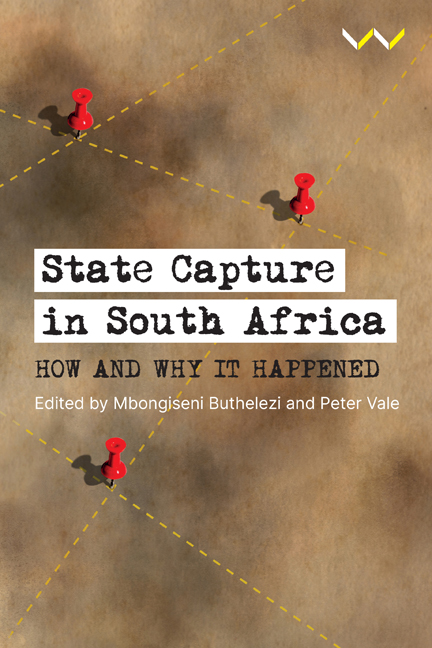Chapter 4 - Legal Mobilisation against State Capture
Published online by Cambridge University Press: 28 February 2024
Summary
With the election of Cyril Ramaphosa to the presidency of the African National Congress (ANC) in December 2017 and his replacement of Jacob Zuma as president of the country a couple of months later amid persistent allegations of Zuma's corruption, South Africa was reported to be entering a ‘New Dawn’.1 This chapter analyses the legal and organisational aspects of mobilisation against state capture. It argues that the power of the law in its action against state capture consisted not only in the institutional strength of the courts, but was also significantly constituted in the impact that the legal profession and policy organisations working with the courts and other legal institutions were able to jointly produce.
The Judicial Commission of Inquiry into Allegations of State Capture, Corruption and Fraud in the Public Sector including Organs of State began hearing testimony in mid-2018; by July 2019, the Zondo Commission had heard testimonies from more than 80 persons over 130 days (Swilling 2019).
TOWARDS AN ANALYSIS AND DEFINITION OF STATE CAPTURE
In April 2017, the Open Society Foundation funded the State Capacity Research Project (SCRP), in which a number of academics collaborated to craft a response to President Jacob Zuma's continued attempts to establish control over the National Treasury (Foley and Swilling 2018). As noted elsewhere in this volume, the first outcome of the SCRP was the ‘Betrayal of the Promise’ report (PARI 2017), which later appeared in book form as Shadow State: The Politics of State Capture (Chipkin and Swilling 2018). The second outcome was a case study of state capture at the South African Social Security Agency (SASSA) (Foley and Swilling 2018). While the primary purpose of the ‘Betrayal of the Promise’ report was ‘to provide an academic framework in which to better understand the social, political, and economic moment in South Africa’, it was additionally a purposeful intervention in the politics of the moment (Foley and Swilling 2018, 1).
In the SCRP's view, state capture is a project reaching beyond simple corruption and is different from other instances of grand corruption in its political nature (Foley and Swilling 2018, 1). In its mode of operation, state capture engages in a set of network activities that run counter to the intentions, objectives and rules of the Constitution.
- Type
- Chapter
- Information
- State Capture in South AfricaHow and Why It Happened, pp. 89 - 108Publisher: Wits University PressPrint publication year: 2023



